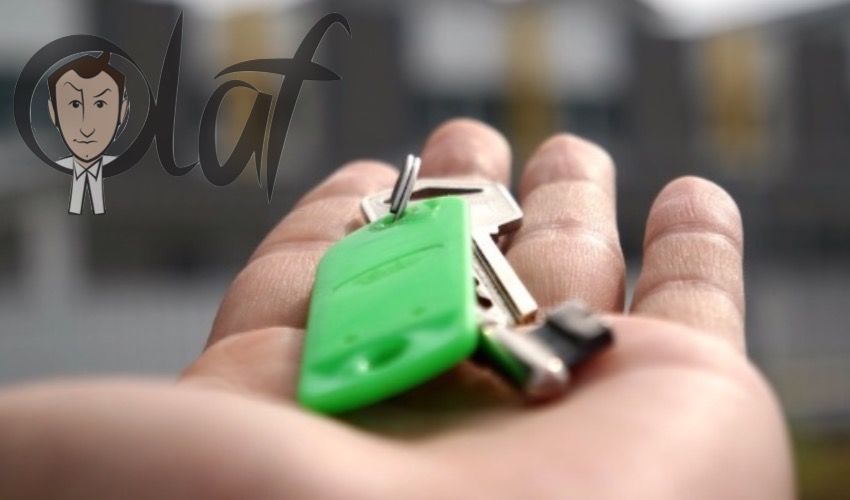

Do you know your 'invitees' from your 'lodgers' and 'flying freeholds' from your 'share transfers'?
Questions about such terms are something seasoned lawyer and Connect columnist Advocate Olaf Blakeley finds himself answering frequently, so he's penned a handy guide...
"The most basic form of property occupation is probably as an ‘invitee’ or ‘lodger.’ In effect, you are a guest of a property owner - even though in many cases you will pay money.
You do not have a specific right of occupation, neither do you have a set period of time for which you can remain in occupation. The person who allows you to reside in the property can take away the right by simply requiring you to leave. This type of occupation would suit someone who is not legally or financially able to rent a property.

Pictured: The rights and obligations of landlords and tenants are set out in a lease.
Renting property gives no right of ownership but allows a person to occupy the premises exclusively for a set period of time. Both landlords and tenants have specific rights and obligations which are set out in a lease.
Importantly, as I have mentioned, the tenant has exclusive occupation. This means the tenant can exclude the landlord from the premises, and the landlord cannot enter the property (except for things such as maintenance but generally with notice). It is the tenant’s home for the period in the lease.
The rights and obligations vary greatly but there are some which are common across leases. Some leases give a person the right to renew for another term, some do not. Any lease which has a term longer than nine years must be registered in the Royal Court, and stamp duty must be paid. The amount of duty is calculated by reference to the rental and the length of time the lease is to run. Because of the extra costs involved, generally only commercial leases extend for more than nine years.

Pictured: There are three different types of property ownership.
Ownership of property can be obtained in one of three ways: Freehold, Flying Freehold or Share Transfer.
Freehold is the traditional method of ownership. A property, and its land, is sold by a vendor to a purchaser and the transaction is registered in the Royal Court. The details are set out in a contract of sale, and these are recorded in the Public Registry. Stamp duty is payable. The property itself can be used to secure lending and is more often than not used to secure a mortgage.
Flying Freehold is a (relatively) new method of ownership. It is used for those buying flats/apartments in a larger block or building. Here an ‘Association’ is created comprising the owners of the individual apartments. The owners have rights and obligations over the ‘common parts’ of the building, and rights of occupation and ownership of the separate units of accommodation. Stamp duty is also paid, and the registrations are again registered before the Royal Court.
Pictured: Transactions are registered with the Royal Court.
Finally, share transfer: this is similar to flying freehold because it is often used in situations in which there are blocks of flats, where there are common parts. In this type of ownership, the actual owner of the property and land is a company. The individuals obtain their rights of occupation by buying blocks of shares in the company. There exists a document (Articles of Association) which sets out each shareholder’s specific rights, including specific rights of occupation of defined parts of the property.
For many years no stamp duty was payable on the purchase/sale of the shares in this type of transaction. It was a prime opportunity for extra revenue to be obtained and so a tax was introduced for transfers of shares for residential property. The transactions however are not registered in the public registry.
Property transactions are very significant and important transactions. In many cases it is almost impossible to carry out a transaction without a lawyer, but even where one is not strictly required, I would always recommend taking legal advice on any such transaction."
You can read this article and more from Advocate Olaf Blakeley in Connect.
Comments
Comments on this story express the views of the commentator only, not Bailiwick Publishing. We are unable to guarantee the accuracy of any of those comments.